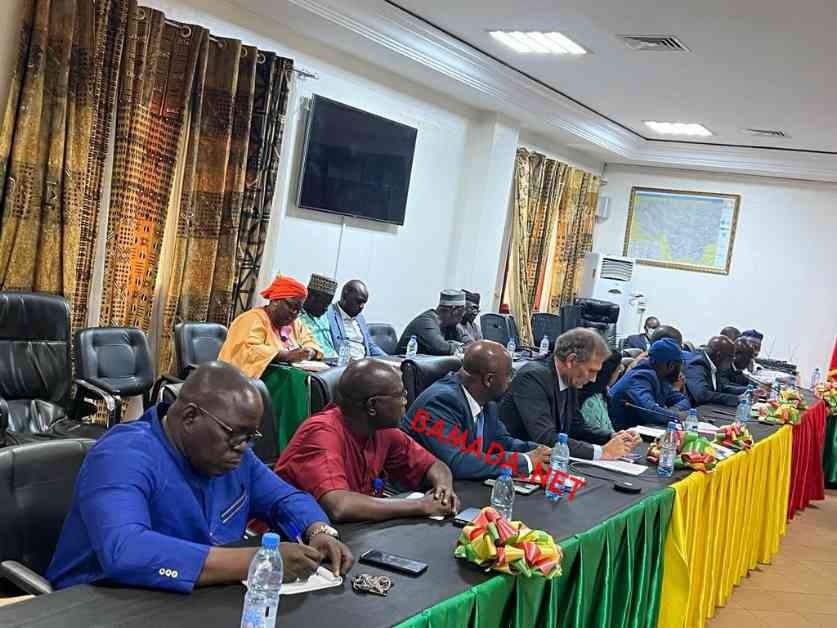Emergency Humanitarian Action: UN Grants Over 6 Billion FCFA to Mali
The United Nations Central Emergency Response Fund has allocated 11 million US dollars, which is over 6 billion FCFA, to Mali under the underfunded emergencies window. This announcement was made by the United Nations Office for the Coordination of Humanitarian Affairs (OCHA) in a statement released on August 31, 2024.
This funding will enable the humanitarian community to prioritize responding to emergencies in the Northern and Central regions of Mali, which have been affected by a food and nutrition crisis impacting 1.3 million people, as well as a continuous influx of refugees from the central Sahel. The allocation sends a strong signal to the international community about the lack of resources to address the growing and complex needs of the populations in Mali and the central Sahel affected by armed conflicts and the climate crisis.
« The financial allocation comes at a crucial time for humanitarian actors in Mali who are still forced to make difficult choices due to limited resources, sometimes reducing the quantity of aid to assist the most vulnerable and those living in remote areas, » stated Acting Resident and Humanitarian Coordinator Maleye Diop, who took the opportunity to make a passionate appeal to the international community.
« I call on donors to prioritize Mali in international agendas and support regular funding for humanitarian response, » Diop emphasized.
The United Nations Office for the Coordination of Humanitarian Affairs reminds that « as of August 2024, only 26% of the required $701.6 million under the 2024 Humanitarian Response Plan has been mobilized, while the Malian government declared a state of national disaster following floods that claimed 30 lives and affected 47,374 people since the beginning of the rainy season. »
OCHA further added that « barely 600,000 out of the 4.1 million people targeted for humanitarian aid in 2024 have been assisted, primarily due to lack of funding. Gaps in aid financing perpetuate vulnerability cycles and diminish the chances of recovery for populations. The CERF funds aim to prevent a worsening of the humanitarian situation in Mali. Without urgent and flexible funding, needs may escalate throughout the year, despite significant efforts by the government and humanitarian partners. »
It is important to note that the Central Emergency Response Fund is a humanitarian financing mechanism managed by OCHA, enabling a quicker and more effective response to the vital needs of populations affected by natural disasters, armed conflicts, or underfunded crises. It was established by the United Nations General Assembly in 2006.
### Challenges in Humanitarian Aid Distribution
The allocation of over 6 billion FCFA to Mali comes at a critical time when the country is facing multiple challenges in humanitarian aid distribution. The ongoing food and nutrition crisis, coupled with the influx of refugees from the central Sahel, has stretched the resources of humanitarian actors in the Northern and Central regions of Mali.
Despite efforts to assist the most vulnerable populations, limited funding has forced aid organizations to make difficult choices, often resulting in reduced aid quantities. This not only hampers the effectiveness of humanitarian response but also compromises the recovery and resilience of affected communities.
### Urgent Need for International Support
The call for donors to prioritize Mali in international agendas and provide regular funding for humanitarian response highlights the urgent need for international support. The underfunded emergencies window allocation from the United Nations Central Emergency Response Fund is a crucial step towards addressing the growing and complex needs of populations in Mali and the central Sahel.
As the humanitarian situation in Mali continues to deteriorate, with only a fraction of the required funding mobilized for the 2024 Humanitarian Response Plan, the international community must rally together to prevent a worsening of the crisis. Without immediate and flexible funding, the already vulnerable populations in Mali will face increased challenges in accessing essential aid and services.
### Conclusion
In conclusion, the allocation of over 6 billion FCFA to Mali from the United Nations Central Emergency Response Fund is a significant step towards addressing the urgent humanitarian needs in the country. However, more support is needed from the international community to ensure that the most vulnerable populations in Mali receive the assistance they require to overcome the challenges they face. By prioritizing Mali in international agendas and providing regular funding for humanitarian response, donors can help prevent a further deterioration of the crisis and support the recovery and resilience of affected communities.

